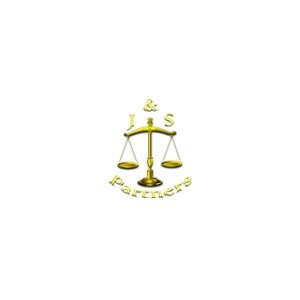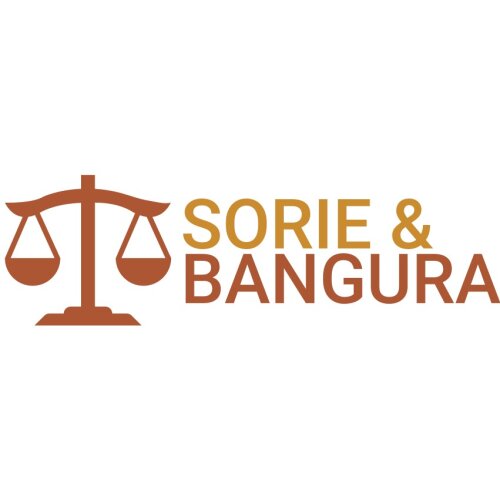Best Family Lawyers in Sierra Leone
Share your needs with us, get contacted by law firms.
Free. Takes 2 min.
Free Guide to Hiring a Family Lawyer
Or refine your search by selecting a city:
List of the best lawyers in Sierra Leone
About Family Law in Sierra Leone:
Family law in Sierra Leone covers a wide range of issues related to marriage, divorce, child custody, adoption, and inheritance. It is governed by both statutory laws and customary laws that vary among different ethnic groups.
Why You May Need a Lawyer:
You may need a lawyer for matters related to divorce, child custody, adoption, domestic violence, inheritance disputes, or any other legal issues affecting your family. A lawyer can provide you with legal advice, represent you in court, and help you understand your rights under the law.
Local Laws Overview:
Key aspects of family law in Sierra Leone include the Marriage Act, the Matrimonial Causes Act, the Children's Act, and various customary laws that govern family matters. The law prioritizes the best interests of the child in cases involving custody and support.
Frequently Asked Questions:
1. Can I get a divorce in Sierra Leone?
Yes, divorce is permitted under the Marriage Act in Sierra Leone. You will need to meet certain requirements and go through legal proceedings to obtain a divorce.
2. How is child custody determined in Sierra Leone?
Child custody is determined based on the best interests of the child. The court will consider factors such as the child's age, health, and emotional well-being when making custody decisions.
3. What are the laws regarding adoption in Sierra Leone?
The Adoption Act governs adoption in Sierra Leone. Prospective adoptive parents must meet certain requirements and follow legal procedures to adopt a child.
4. What legal protections are available for victims of domestic violence?
The Domestic Violence Act provides legal protections for victims of domestic violence, including the ability to obtain protection orders against abusers.
5. How are inheritance disputes resolved in Sierra Leone?
Inheritance disputes are typically resolved through customary laws that govern inheritance within specific ethnic groups. Legal proceedings may be necessary to resolve disputes that cannot be settled amicably.
6. Can I change my child's name in Sierra Leone?
Yes, you can change your child's name by following legal procedures outlined in the Births and Deaths Registration Act.
7. What rights do grandparents have in relation to their grandchildren?
Grandparents do not have automatic legal rights to custody or visitation with their grandchildren in Sierra Leone. However, they may seek court intervention in certain circumstances.
8. How can I enforce a child support order in Sierra Leone?
If a parent fails to comply with a child support order, you can seek enforcement through the court system. Legal remedies may include wage garnishment or other measures to ensure compliance.
9. What are the legal requirements for getting married in Sierra Leone?
Legal requirements for marriage in Sierra Leone include obtaining a marriage license, registering the marriage with the Registrar General's Office, and meeting age and consent requirements.
10. How can I protect my assets in the event of divorce?
You can protect your assets through a prenuptial agreement or by seeking legal advice on property division laws in Sierra Leone. Consulting with a lawyer can help ensure that your assets are protected in the event of divorce.
Additional Resources:
For more information on family law in Sierra Leone, you can contact the Ministry of Social Welfare, Gender, and Children's Affairs or seek assistance from local legal aid organizations.
Next Steps:
If you need legal assistance in family matters in Sierra Leone, consider hiring a qualified family law attorney who can provide you with advice and representation in court. Be sure to gather all relevant documents and information before meeting with a lawyer to discuss your case.
Lawzana helps you find the best lawyers and law firms in Sierra Leone through a curated and pre-screened list of qualified legal professionals. Our platform offers rankings and detailed profiles of attorneys and law firms, allowing you to compare based on practice areas, including Family, experience, and client feedback.
Each profile includes a description of the firm's areas of practice, client reviews, team members and partners, year of establishment, spoken languages, office locations, contact information, social media presence, and any published articles or resources. Most firms on our platform speak English and are experienced in both local and international legal matters.
Get a quote from top-rated law firms in Sierra Leone — quickly, securely, and without unnecessary hassle.
Disclaimer:
The information provided on this page is for general informational purposes only and does not constitute legal advice. While we strive to ensure the accuracy and relevance of the content, legal information may change over time, and interpretations of the law can vary. You should always consult with a qualified legal professional for advice specific to your situation.
We disclaim all liability for actions taken or not taken based on the content of this page. If you believe any information is incorrect or outdated, please contact us, and we will review and update it where appropriate.
Browse family law firms by service in Sierra Leone
Sierra Leone Attorneys in related practice areas.
Browse family law firms by city in Sierra Leone
Refine your search by selecting a city.











